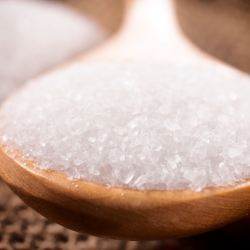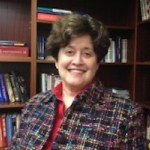
We're so used to hearing advice about decreasing our sodium (and therefore salt) consumption that advice to do the opposite sounds like something the Onion might publish. But no, this is real advice, published in Gulf News. And the scientist who is giving this advice is Dr. James J. DiNicolantonio, a researcher at Saint Luke’s MidAmerica Heart Institute, Kansas City, Missouri.
For years, Dr. DiNicolantonio has been questioning the advice made by numerous governmental and medical groups that we should all decrease our intake of sodium. For example, the American Heart Association advises us to eat no more than a teaspoon of salt (equivalent to 2300 mg of sodium) per day. But then Dr. DiNicolantonio wrote a book saying that this advice is ill-informed. Instead of blaming salt, he blames sugar for most of our chronic ailments. So his advice is to eat more salt and less sugar.
DiNicolantonio is quoted in Gulf News:
“Evidence in the medical literature suggests that approximately 80 per cent of people with normal blood pressure (less than 120/80 mmHg) are not sensitive to the blood-pressure-raising effects of salt at all."
In fact, as we have reported here, some data indicates that there is a U-shaped relationship between dietary sodium and blood pressure — that is, an increased risk of hypertension with both low and high sodium intakes. So to that extent, we can agree with Dr. DiNicolantonio's conclusions about severely lowering everyone's sodium intake. Further, not everyone is sensitive to sodium, so extreme recommendations applied with too broad a brush are unlikely to benefit public health.
However, although we can applaud the advice to avoid extremely low sodium intake without a medical rationale, we have to stand back when he seems to shift the burden to sugar. Yes, eating too much sugar is unlikely to be healthy, and eating large amounts of sodium, certainly for the salt-sensitive among us, is unlikely to be healthy too. But is this just a means of increasing book sales? We wonder.
